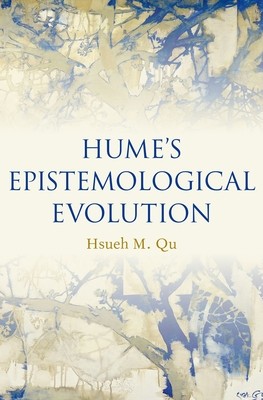
- We will send in 10–14 business days.
- Author: Hsueh M Qu
- Publisher: Oxford University Press, USA
- ISBN-10: 0190066296
- ISBN-13: 9780190066291
- Format: 16.3 x 23.6 x 2.5 cm, hardcover
- Language: English
- SAVE -10% with code: EXTRA
Reviews
Description
A central concern in Hume scholarship is that of the relationship between Hume's early Treatise of Human Nature and his later Enquiry Concerning Human Understanding. Is the Enquiry merely a simplified restatement of the contents of Book 1 of the Treatise, or do the two substantially differ? Another vital issue is as follows: how can we reconcile Hume's seemingly destructive skepticism with his constructive, naturalistic program for a science of human nature?
Hsueh M. Qu provides here a new interpretation of Hume's epistemology, addressing these perennial and central questions of Hume scholarship, and showing them as intimately related. He argues that the Enquiry indeed differs from the Treatise because Hume changes his response to skepticism between the two works. With this understanding, Qu clarifies a host of enduring questions about the works. Because the Treatise has as its primary focus the psychological naturalistic project, its treatment of epistemological issues is helter-skelter, arising unsystematically from the results of the central psychological investigation. Consequently, Hume finds himself forced into a response to skepticism founded on the Title Principle. However, this response is deeply problematic, as Hume himself seems to recognize. In contrast to the Treatise, the Enquiry emphasizes the epistemological aspects of Hume's project, and offers a radically different and more sophisticated epistemology that takes the formof an internalist reliabilism. Hume's Epistemological Evolution establishes the Enquiry as far more than a watered-down version of the Treatise, and as a worthy object of philosophical study in its own right. Qu offers a broader, master narrative encompassing both the Treatise and the Enquiry that stakes out a narrative of evolution across the two works--a narrative that explains some of the most central interpretive questions in Hume scholarship.
EXTRA 10 % discount with code: EXTRA
The promotion ends in 19d.21:42:25
The discount code is valid when purchasing from 10 €. Discounts do not stack.
- Author: Hsueh M Qu
- Publisher: Oxford University Press, USA
- ISBN-10: 0190066296
- ISBN-13: 9780190066291
- Format: 16.3 x 23.6 x 2.5 cm, hardcover
- Language: English English
A central concern in Hume scholarship is that of the relationship between Hume's early Treatise of Human Nature and his later Enquiry Concerning Human Understanding. Is the Enquiry merely a simplified restatement of the contents of Book 1 of the Treatise, or do the two substantially differ? Another vital issue is as follows: how can we reconcile Hume's seemingly destructive skepticism with his constructive, naturalistic program for a science of human nature?
Hsueh M. Qu provides here a new interpretation of Hume's epistemology, addressing these perennial and central questions of Hume scholarship, and showing them as intimately related. He argues that the Enquiry indeed differs from the Treatise because Hume changes his response to skepticism between the two works. With this understanding, Qu clarifies a host of enduring questions about the works. Because the Treatise has as its primary focus the psychological naturalistic project, its treatment of epistemological issues is helter-skelter, arising unsystematically from the results of the central psychological investigation. Consequently, Hume finds himself forced into a response to skepticism founded on the Title Principle. However, this response is deeply problematic, as Hume himself seems to recognize. In contrast to the Treatise, the Enquiry emphasizes the epistemological aspects of Hume's project, and offers a radically different and more sophisticated epistemology that takes the formof an internalist reliabilism. Hume's Epistemological Evolution establishes the Enquiry as far more than a watered-down version of the Treatise, and as a worthy object of philosophical study in its own right. Qu offers a broader, master narrative encompassing both the Treatise and the Enquiry that stakes out a narrative of evolution across the two works--a narrative that explains some of the most central interpretive questions in Hume scholarship.


Reviews